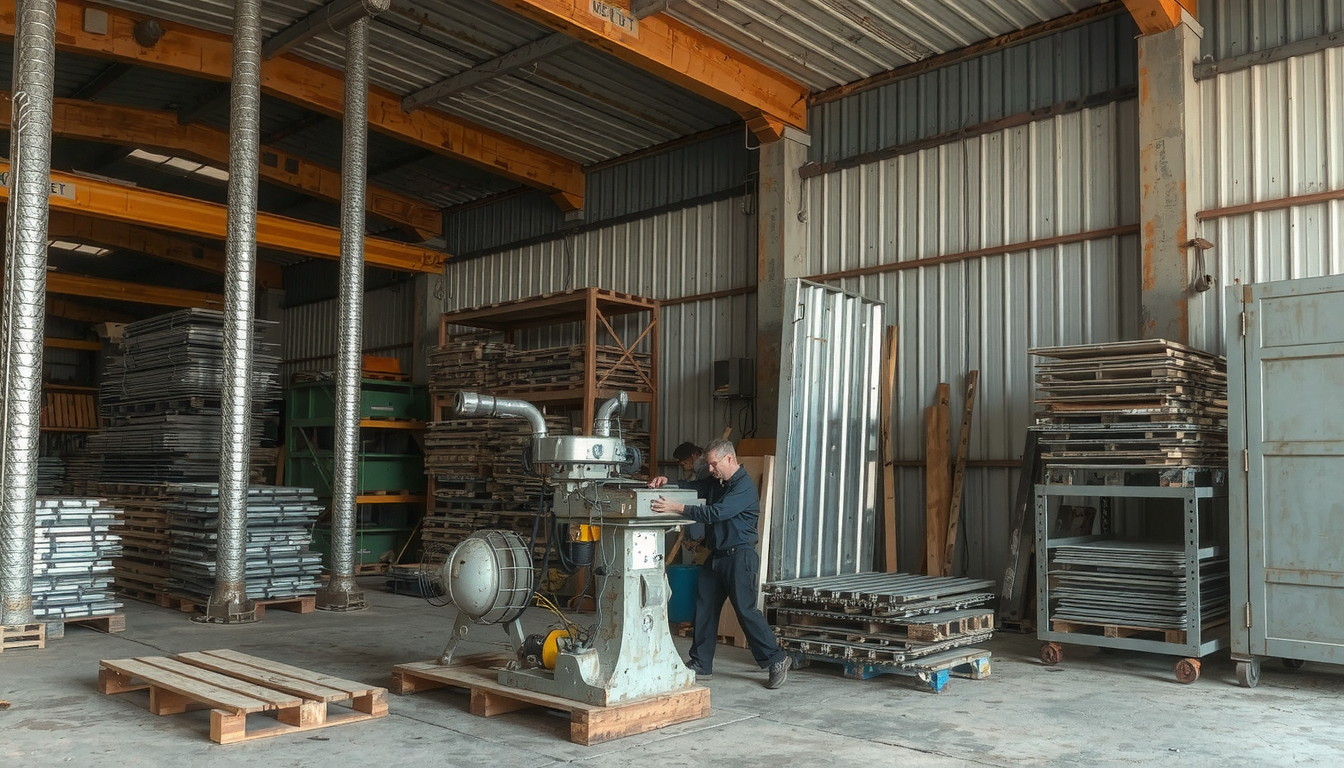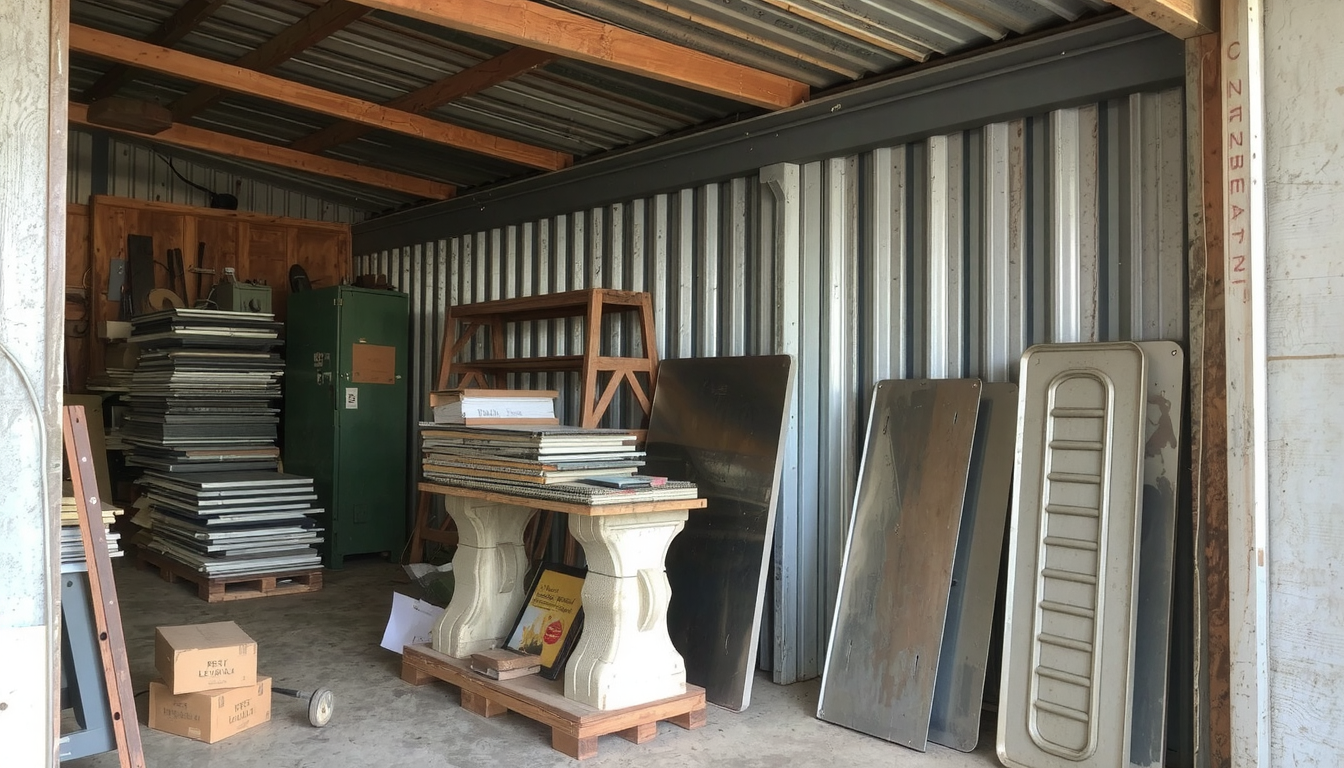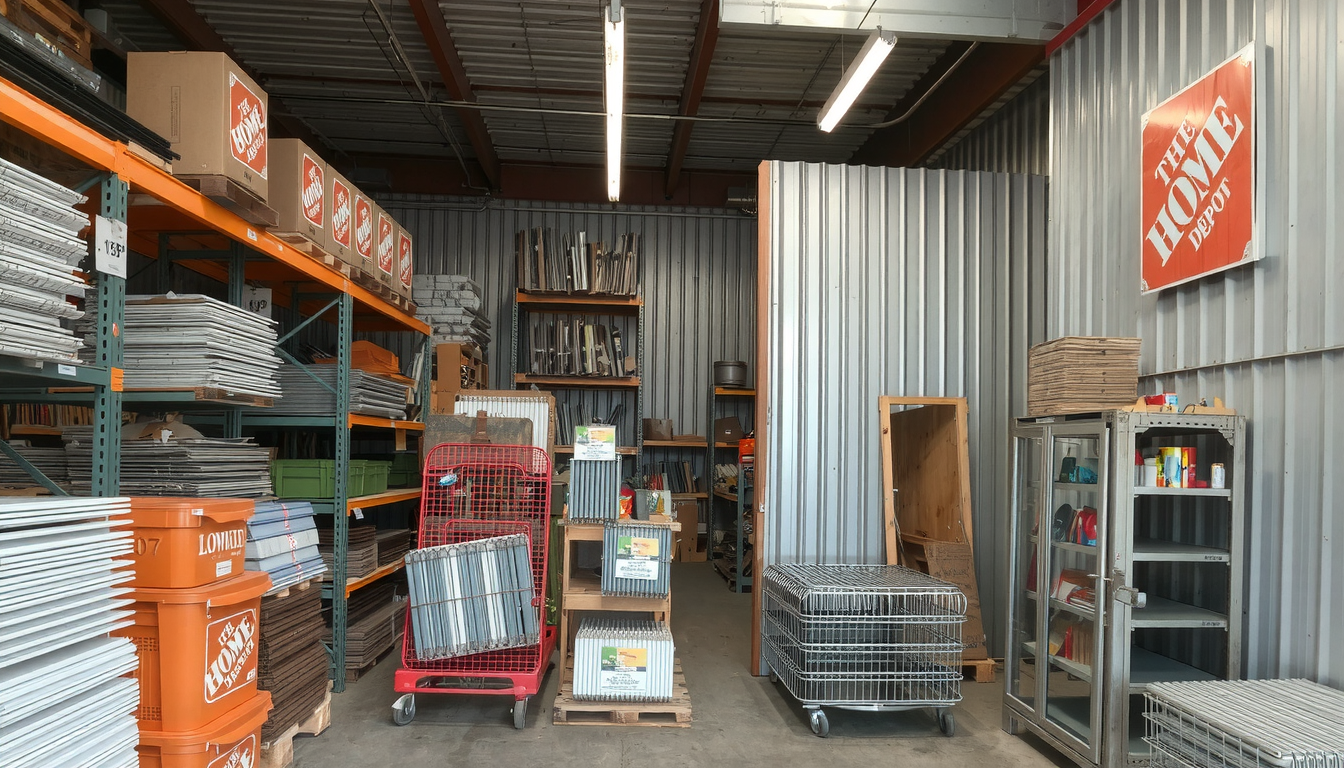The most important step to a rewarding endeavor is to choose the perfect material. You are most likely on the right track since you are asking “where to buy sheet metal near me.” Sheet metal is not only available locally, but it is also much easier than you think to get it. There are several places to get this. They include big stores for small jobs and specific expert suppliers.

This manual reveals the specific stores to go to. We will start with what type of suppliers is best for your project. Then we will discuss how to select them. You will get to know what to ask the supplier before you make a purchase. Additionally, you will get a variety of tips on cutting your expenses.
This text sets you on a straightforward path to the sought-after metal. A great alternative for complicated project demands is a full-service provider like Mekalit. They not only supply raw materials but also have expert work to offer. Let’s find out the best local source for sheet metal together.
Your Top 4 Options for Buying Sheet Metal Locally
To find the right supplier, it is important to understand the options you have. Not every establishment is of equal value; some are better than others, and it depends on the project’s size and needs. Here are the four main types of places where you can find sheet metal suppliers near you.
Big-Box Home Improvement Stores
Big-box stores like Lowe’s or Home Depot are extremely convenient. They are ideal for small DIY projects and quick repairs. You need just to come in and get your items.
These stores usually only stock commonly used materials, which are mainly small, pre-cut sheets for aluminum and mild steel. The thickness options are also the basic options. Thus, they are good for amateurs or just a quick fix. A sample of the stock they usually offer is Sheet Metal & Rods at Menards®.
- Typical Offerings: Small pre-cut sheets, common materials like aluminum and steel, basic gauges.
- Best For: Hobby projects, home repairs, decorative pieces, and anyone needing metal right away.
Specialized Metal Suppliers & Distributors
If you are a serious hobbyist, contractor, or professional, you don’t have to think too hard about it. A specialized metal supplier is the best place to go. The businesses that you will find here specifically focus on selling metal products, which makes them the preferred option for professional users.
They provide a wide selection of materials with options for stainless steel, brass, copper, different steel alloys, and many others. You will also get various thicknesses and finishes. One of their major advantages is the cut-to-size service, which is offered at no extra cost. An example of such a dedicated local supplier is S.&.J Sheet Metal Supply that serves many industries.
- Typical Offerings: Large inventory, different thicknesses, custom cutting, large sheet sizes.
- Best For: Fabricators, welders, artists, contractors, and projects needing specific materials.

Online Metal Retailers with Local Pickup
Some companies are considered the best of both worlds since they have a large online store and a local warehouse for pickup. This hybrid model will give you access to a massive inventory and save you from shipping costs.
You can browse and order the exact metal you need online, then drive to the local warehouse and get it. This is the perfect solution if you need a specific alloy or size that is not available locally but you want it quickly. Many online sellers, like some Aluminum Metal Material Suppliers, serve specific local areas this way.
- Typical Offerings: Large online inventory, specific alloys and sizes, local pickup option.
- Best For: Users needing unique materials quickly without paying for shipping.
Local Welding and Fabrication Shops
Do not forget about the small businesses near you. Many local welding and fabrication shops are also selling sheet metal straight from their stock. This especially would apply for local customers to deal with as well as those having a specific project.
Their inventory will differ from each other. Most of them will have the most-sought types of steel and aluminum. The best benefit is that you get the service of the experts. The staff will be able to offer you tips regarding your project. You can thus get to know where to buy sheet metal and at the same time, get professional tips.
- Typical Offerings: Common steel and aluminum stock, expert advice, potential for fabrication help.
- Best For: Small business owners, artists, and anyone who might need both materials and guidance.
Choosing the Right Supplier: A Comparison Table
The process of sheet metal buying can be perplexing. Suppliers can be classified according to their pros and cons. This comparison table helps in showing the differences side-by-side and hence you can select the best option for your project.
| Supplier Type | Auswahl des Materials | Price per Sq. Ft. | Custom Cutting | Minimum Order | Best For |
|---|---|---|---|---|---|
| Big-Box Store | Limited (common metals) | Generally Higher | No/Limited | Keine | Beginner DIY, Quick Fixes |
| Specialized Supplier | Extensive (alloys, finishes) | Competitive/Bulk | Yes, Standard Service | May Apply | Professional, Specific Needs |
| Online w/ Pickup | Very Extensive | Competitive | Yes | Varies by Retailer | Unique Materials, No Shipping |
| Fabrication Shop | Varies (common stock) | Variiert | Yes, with Services | Usually None | Small Pieces, Expert Advice |
This table is an excellent guide. A big-box store is just fine for a small vegetable garden project, while a specialized supplier is the one to go for when you want to build a custom trailer.
Before You Buy: A Checklist for Purchasing Sheet Metal

Being organized when dealing with the supplier saves you time and money; it also helps you to get the exact metal you need. The following checklist is what you need. It may be a simple version, but experienced professionals often use it too before ordering sheet metal.
1. Identify the Metal Type
The first thing to do is to identify the type of metal that you require. The right decision is determined by what your project needs. You should think about strength, weight, and rust resistance.
- Aluminum: It is lightweight, easy to work with, and it does not rust. This makes it suitable for signs, automobile body panels, and decorative items.
- Steel: It is strong, multifunctional, and budget-friendly. You can use it for structural components, brackets, and welding projects. However, without a layer of paint or coating it will rust.
- Stainless Steel: It has steel-like strength but is resistant to rust and corrosion. It is often used in kitchens, medical instruments, and outdoor fixtures.
2. Know Your Dimensions
Find out the dimensions of the piece you need: length and width. It never hurts to measure after measure. This way, you avoid making mistakes. You should write the dimensions clearly; for example, you can use “24 inches by 36 inches.”
If you have to get several pieces, provide a list with each one’s dimensions. This list is usually called a “cut list.” Complete cut lists reduce the time for a quote to be given.
3. Specify the Thickness (Gauge)
The thickness of sheet metal is referred to as the gauge. It is important to remember that the gauge system is inversely proportional. A lower gauge figure means a thicker and stronger metal while a higher gauge number means a thinner metal.
For example, 16 gauge steel is thicker than 22 gauge steel. The following is a helping reference for common steel gauges:
- 10 Gauge: ~0.1345 inches (3.4 mm) – Very thick, for heavy-duty frames.
- 16 Gauge: ~0.0598 inches (1.5 mm) – Good for workbenches, durable panels.
- 22 Gauge: ~0.0299 inches (0.8 mm) – Thin, used for auto body patches, ductwork.
4. Determine the Quantity

You should decide how many sheets or pieces you need for your project. You can also add one or two extra ones to your order as a buffer. This means that you have room for errors. You will not need to make a second trip. A 10% buffer is a good guideline.
5. Ask the Right Questions
When you reach a supplier over the phone or go to their store, you should be prepared by having a few questions to ask. It is a good way to get all the required information before they give you the bill. This way you avoid surprises.
Here are some good questions to ask:
- “Do you have a minimum order size or dollar amount?”
- “What are your cut tolerances?” (This tells you how precise their cuts are).
- “Could you quote me for the material and the cuts separately?”
- “What is your current lead time for cutting my order?”
Beyond the Sheet: When to Consider Custom Sheet Metal Fabrication
At times, a project demands something more than a simple flat piece of metal. You may need your sheet metal bent, punched with holes, or welded into a specific shape. At this point, your case will evolve from purchasing material to needing fabrication services.
Sheet metal fabrication is the process of turning flat sheets into finished products by cutting, bending, and assembling metal parts. If your design has complex shapes, multiple bends, or needs to be assembled, you need a fabricator. Trying to do this on your own without the proper tools could be challenging. You might end up with wasted material.
Things can be made easier through the help of professionals when it comes to Blechfertigung. These individuals are precise and fast. A reputable sheet metal shop employs machines that are operated with computers and they deliver the best parts at all times.
A full-service provider is usually the one who is more likely to deliver such services. That means they can take care of your project in its entirety. There are even some shops that will offer the complementary services of CNC-Drehmaschinen-Dienstleistungen for projects that require machined components to fit with your sheet metal parts. This ensures that all of your components will fit well.
Pro Tips for Saving Money on Sheet Metal
Sheet metal costs are not that high if you can find some deductibles. Following are the ways to minimize costs on metal sheet purchases.
- Ask for Off-Cuts or Remnants. Most of the suppliers have racks or bins where they store remnants or scrap. These are small pieces that are leftover from projects and are sold much cheaper per weight. This is the best way to find cheap sheet metal for temporary projects.
- Design for Standard Sizes. Sheet metal is generally available in standard sizes. They are typically 4×8 or 4×10. If you design your project that way, you can cut down the wastage. It will also save the supplier the number of cuts he has to make.
- Buy in Bulk (If Feasible). If you are working on a massive project or you plan future projects, then inquire about price reductions. Buying a full sheet often is more economical by square foot. This is far better than purchasing several small custom-cut pieces.
- Consider a Less Expensive Finish. A plain sheet covered with a mill-finish is the best basic and least expensive option. This is more expensive than a brushed, polished, or patterned finish. You may often do the final finishing steps by yourself. You can utilize a grinder or sandpaper to finish without spending much.
Frequently Asked Questions (FAQ)
Here are some answers to the common questions people have. These are the questions you usually face when looking for where to buy sheet metal near me.
1. Can I buy just a small piece of sheet metal?
Yes, you definitely can! For a very small piece, you can choose to take the pre-cut sections from big-box shops such ad Home Depot. Another highlight is to ask the specialized metal suppliers whether they have remnants or off-cut bins. This is most likely the cheapest option for hobbyists to acquire small pieces.
2. How much does sheet metal cost?
The price varies a lot depending on several factors. The type of metal is the major aspect. Steel is inexpensive while brass and copper are costly. Apart from the thickness, the current market rate also influences the price. As a reference, a 4’x8′ mild steel sheet could cost from $80 to $150 while the same sheet in aluminum might be priced between $150 and $250. Always make sure to contact your local supplier for the correct quote.
3. What is the easiest type of sheet metal to work with for a beginner?
Thinner gauge aluminum, which is 0.040″ (about 1mm), is an excellent starting point. It is simple and light and it can cut easily with hand shears. You can also bend it without any tools.
4. Do I need special tools to cut sheet metal at home?
It depends on the thickness. For thin metal (22 gauge or higher), a good pair of aviation snips will work well. These are also called tin snips. For thicker sheets (16 gauge or lower), you will need power tools. An angle grinder with a cut-off wheel works well. A jigsaw with a metal-cutting blade is another option. A dedicated metal shear is also necessary. Always wear safety glasses and gloves when cutting metal.
5. Where can I find sheet metal for automotive bodywork?
For auto body repair, you will typically need 18 to 22 gauge cold-rolled steel. This type of steel is smooth and easy to shape. While a well-stocked metal supplier might have it, your best bet is often an automotive paint and body supply store. A specialist classic car parts supplier is also a great place to look.

